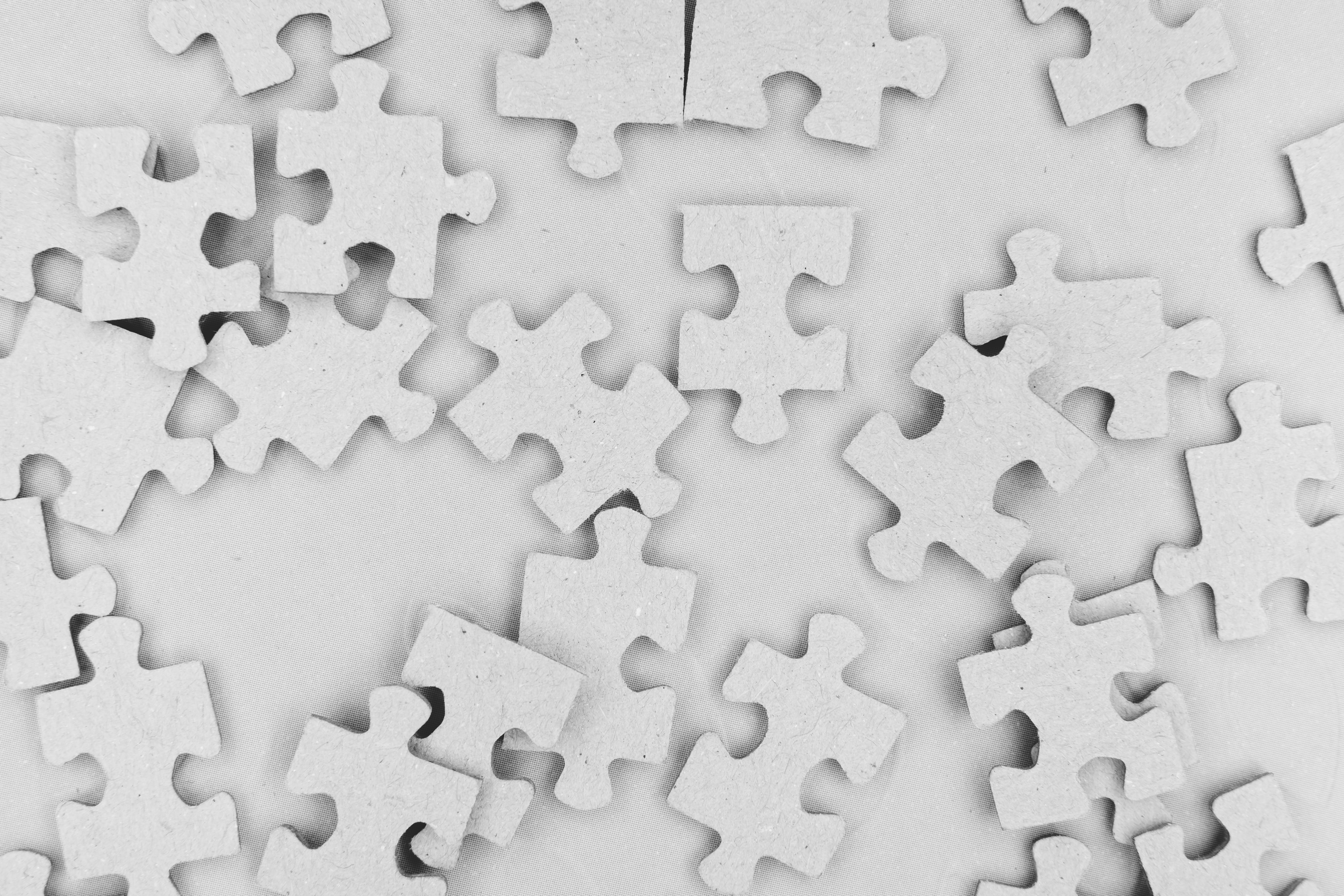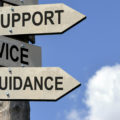
Submitted by guest author Nicole L.
Last year, for Suicide Prevention Month, I wrote about how difficult and intrusive it feels to see suicide prevention campaigns in public. The desire to reframe these messages resonated with a lot of people, so I want to elaborate on some things I hope others will keep in mind when sharing suicide awareness content this month.
The factors that contribute to dying from suicide are exceptionally complex.
Before my dad died, I considered myself to be somewhat of an expert in suicide prevention. After losing two people in my life years before, I’d attended workshops and read about suicide risk factors to the point where I felt confident in my ability to identify warning signs in my friends and colleagues. Then, in 2017, my dad died from suicide, and I was shocked and confused. How had I missed this?
That question was a prevailing theme in my grief group. As we shared about the sudden loss of our parents, children, and siblings, our facilitator pointed us to current research, which shows that it is incredibly difficult to identify those who are at risk for dying from suicide.
Influences include a messy web of anxiety, depression, external stresses, genetics, previous injuries, and/or addiction – and the way people manage these factors varies greatly depending on their life experiences, health history, and access to support systems. Even when we’re able to pinpoint some of the risks, they are not accurate predictors because those who exhibit suicidal signs do not always die from suicide.
I fully support campaigns that normalize depression and encourage us to seek support, but I think we need to stress that suicide is an incredibly complicated subject, and these deaths are not caused by a single, preventable factor.
Emphasizing warning signs can exacerbate survivor trauma.
Those of us navigating a recent loss are already fixating on the last days, weeks, and months before our loved one died and scanning our minds for the signs that we may have missed. Suicide awareness campaigns that place further emphasis on that “crucial time period” can further contribute to survivor trauma.
One of the revelations my grief group shared was recognizing that the difficult moments we remembered were not necessarily signs that we missed; rather, they were normal human behaviors that we probably never would have revisited if they were still alive. Sometimes people contemplate suicide for years, but never attempt. Sometimes people make one impulsive decision. Some attempt, get better, make additional attempts, and get better, but still eventually die from suicide.
We all have difficult days. Many of us are navigating depression. Suicide prevention campaigns that over-simplify risk factors and reduce them to a list of warning signs that someone may or may not exhibit before ending their life feels insulting, and the implication that a loved one can intervene further contributes to guilt or shame for those of us who were not able to do that.
Prevention is not always possible.
I know a lot of survivors find prevention work to be incredibly meaningful, but that isn’t the right path for me. One of the most comforting things that happened to me after losing my dad to suicide was hearing my therapist say with total honesty and transparency that, if she had met with him, she would have helped him work through his depression in therapy, but likely would have sent him home. He probably still would have died.
Early detection and intervention is an amazing goal, but over one hundred people will die from suicide in the U.S. today alone. In the same way that we’re not going to be able to prevent every car accident or treat every cancer, we’re not going to be able to prevent every death by suicide. In fact, more people die by suicide than car accidents, and many of those people, like my dad, are kind and present and funny and easy-going and not exhibiting the warning signs that suicide prevention campaigns typically highlight. Even with the best support efforts in place, presenting suicide as something we can consistently anticipate and prevent is false. And I honestly believe it’s harmful to assume that if we are vigilant enough, we’ll be able to prevent the next one.
This month, instead of being inundated with risk factors and warning signs, I’d rather send love and support and comfort and gentleness and understanding to everyone who is struggling right now.
I’d rather spread the message that feeling depressed is incredibly common – especially during this pandemic – and we should be more forgiving and loving with ourselves and others.
I hope more suicide awareness campaigns will consider the impact prevention language has on those navigating a recent loss. Normalize therapy and medication and making treatment more accessible, but don’t over-simplify the risks or solutions. Survivors carry too much guilt, and if our love could have saved them, it would have.




I agree with you 100%. A couple of months after my 25 year old son died by suicide I went on a work trip to Arizona. Driving down the highway in the middle of no where was a huge sign saying Suicide is Preventable. I was devastated. I took it as a personal affront to me as my baby’s mother.
I think it is misleading and insulting to show photos of people looking sad or kids with pouty faces and say that is a warning sign. It has been almost 3 years since I lost my son and I have met many other mothers who have lost children to suicide, and we tell each other stories of how they just bought new clothes or were smiling and laughing shortly before. Suicide is complicated.
Thank you for writing this.
My 18 year old son died by suicide almost 6 years ago. He exhibited absolutely none of the “signs” and wasn’t in any of the at risk categories. Even the morning he shot himself he was behaving completely normal. I absolutely detest the “suicide is preventable” slogan.
I’m so sorry that happened to you. I had the same reaction the first time I saw a “Suicide is Preventable” sign – it felt like a punch in the gut and I was so angry. Suicide is so complicated – we exchanged a lot of similar stories in my grief group as well. I’m glad this resonated with you, and I hope you continue to find peace in your healing.
Suicide is Preventable ???
Not always . With my son William , 21 , it most definitely was not ! William suffered with debilitating Anxiety and depression. William was very intelligent , kind , gentle , very engaging , and had the most Wonderful sense of humor ! He was loved by so many people . But ….. William just couldn’t cope in the world that he lived in . William made a choice . He needed the pain to stop . He just couldn’t take it anymore .
William won his battle ! He is free and completely at peace ! I miss him so much but I am comforted knowing that He is no longer suffering ! And no more Drs , meds , therapists , hospitals , He was just so tired of it all .
MY WILLIAM IS FREE !!!!.
That has struck and very real chord , and one that’s so important . When someone is in so much pain and anguish that they can’t bare to go on. They know they are loved but to them everyone would be better off without them . They would do it anyway and that’s what we have to remember , not the guilt of not having the conversation with them to remind them what was good and hopeful in their life and how much they were loved. In reality they would have found a way to do it anyway .
My husband died by suicide 3 weeks ago and this article has helped me so much. So true about sometimes there is nothing that can be done. My husband was depressed on and off for many years. He was on medication. He suffered from anxiety as well. This year had been especially hard on him with a job loss and having a hard time getting work, he started a new business but it was so hard for him. We could see he struggled every day. It breaks my heart. We (me and the kids) were constantly telling him he was loved, we were there for him. He knew this. Everyday he tried to be optimistic. The morning before he died he was in great spirits, in one of the best of moods I had seen him in in a long time. But by the afternoon he felt “down” again. The last thing he said to me was that he had not felt well in his body for a long time and that he felt invisible. I talked to him and tried to encourage him to get help. I told him I loved him and he was not invisible. That he had so much to live for, his children, his grandbaby, me….he was gone half an hour later. Two days after his 50th birthday where we had a nice celebration with our whole family. He was very much loved and not invisible to any of us. He just couldn’t see it through his pain.
Belinda, I’m sending you so much love. I remember how overwhelming and painful those first weeks are. It’s so hard to wake up every morning and remember. Be gentle with yourself. Your husband was so lucky to have you and he knew you loved him. I always remind myself that grief is love and if love was enough, they’d still be here.
I also lost my husband to suicide. We had recently divorced due to his spending issues with biopolar disorder. We were best friends. He had attempted suicide several times before and no one thought it would happened. His last text to me said Take care I will miss you. I was moving that day and thought nothing of it or calling him until it was too late.
This also is something that I struggle with. I lost my oldest son to suicide 14 months ago. He was 35, left behind 2 beautiful children and a wonderful wife. While he struggled on and off over the years, and in hindsight I’m positive he suffered from undiagnosed bipolar disorder, he was in the best place in his life he had ever been. He was also an alcoholic. We would have big conversations over drinking and he would do much better for months at a time, but in the end he just got much better at hiding it from me, and as I saw him flourishing in his work and home life, I also let down my guard and didn’t notice the things I would have before. As a mother we feel we have one main job and that’s to protect and save our children from harm, the absolute disabling guilt that hits especially after losing a child to suicide is hard enough without seeing all the adds that Suicide is Preventable, as of we just didn’t prevent it. While I’m not saying all suicide is not Preventable, it’s just that there are many that I do not think are, and the survivors should not be made to feel anymore guilt than they already live with. I already feel that I failed my son by not saving him.
Thank you for writing this article. My son died in 2013 and that’s when I became hyper aware of the world of suicide. Whenever I would see campaigns stating that “Suicide is Preventable” it made me so upset. I thought, if it was preventable, why did my son die? Suicide awareness is important and bringing it to light may save lives, but seeing campaigns that imply all suicides are preventable simply inflicts more pain on the loved ones left behind.
This is one of the best things I’ve read to address this topic. And I’ve read everything…books, articles, essays, columns…I could in the last 8 years since my daughter died. As a peer facilitator for support groups, I appreciate having this to share with my members. Thank you, Becky, for your transparency.
Thank you so much for your kind words, Jaletta. I think it’s so important to acknowledge the complexities of depression and suicide, I’m so glad this message is reaching people. It feels good to be able to write things that resonate with other survivors. Yes, please share it with your support groups.
The idea that all suicides are preventable is naive, and a cruel deception for those like us who continue to survive. My Son left us coming up to three years ago in December. It is not acceptible that people with little or no knowledge parade themselves as experts. There is enough faux empathy all around us, without adding to it, in order to gratify those self serving individuals keen to be heard, but have little to say and who are the worst kind of apologists in the fight to enlighten the darkness around suicide.